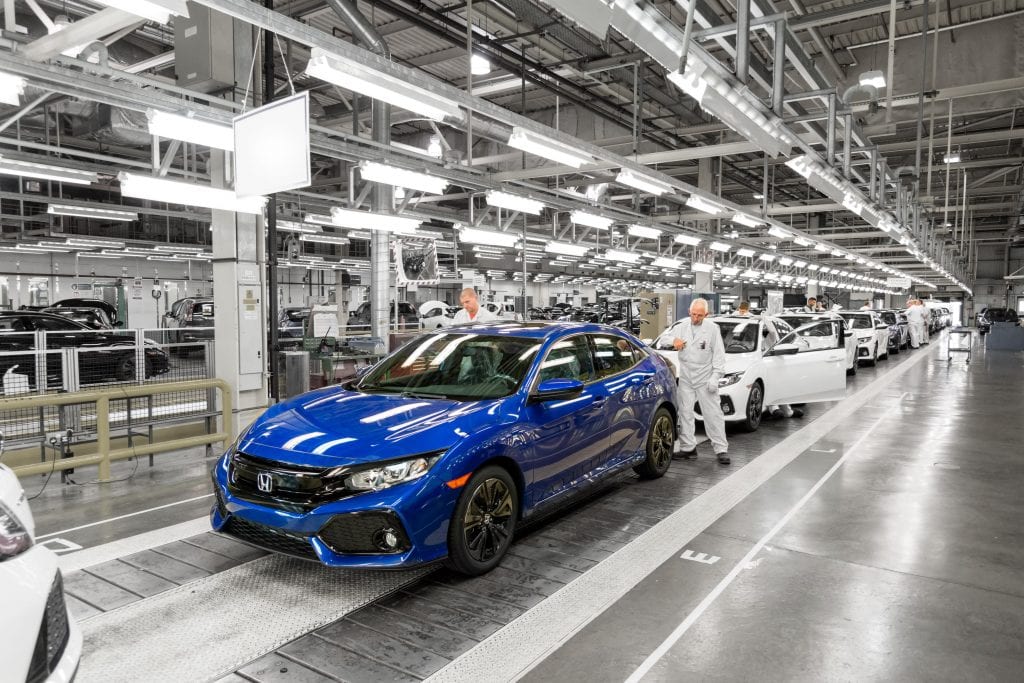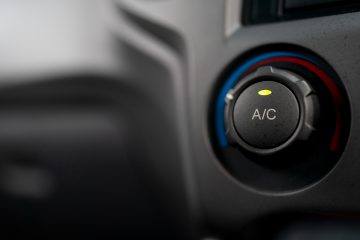
Honda has announced a major restructuring program, closing its plants in Swindon, UK, and Kocaeli, Turkey, citing the challenge of modern automotive conditions as its reasons – and it is a warning that even the aftermarket should be heeding.
While many may think that the closure of Swindon is to do with Brexit (and more on that in a moment), the closure of the plant at Kocaeli in Turkey should highlight that this is more to do with a big change in vehicle technologies, one which is causing manufacturers around the world a number of financial and logistical problems.
CO2 levels
By 2021, manufacturers need to meet a European target of 95g/km average for their fleets. This is down from the 130g/km target for 2015. However, in 2017, the average manufacturer CO2 level was 118.5g/km. That is significantly lower than 2015 requirements, but causes a headache of a different kind for carmakers today.
To make matters worse, for 2025, the current target is to be reduced by 15%, and by 37.5% by 2030. Therefore, manufacturers will need to reduce 2017 levels by around half. There are fines for every 1g/km over the limit, which could total millions, if not more.
The problem is, the initial targets were achievable until a couple of years ago. Last year, diesel sales collapsed across Europe, and in the UK alone, CO2 levels rose by over 2%, the second rise in as many years, after two decades of drops. Manufacturers were extremely reliant on diesel to meet the CO2 targets, but as the market shows no sign of recovery, they must look elsewhere.
Electric vehicles
The answer, therefore, is a development programme for electric vehicles (EVs). It is a programme that most have been slowly developing for some time, but the diesel decline and rise in CO2 levels has forced their hands.
Most will likely fail to meet 2021 CO2 requirements – and face large fines as a result. But if carmakers can get a range of EVs onto the market as soon as possible, and push development to ensure a majority of their vehicles sold before 2025 are electric or hybrid, it will help them to meet stricter targets going forward.
This is evidenced in Honda’s statement about its plant closures: The Japanese firm says: ‘This proposal comes as Honda accelerates its commitment to electrified cars, in response to the unprecedented changes in the global automotive industry. The significant challenges of electrification will see Honda revise its global manufacturing operations.”
There is further evidence that carmakers are pushing for electrification. Daimler recently announced that, due to the new WLTP emissions test, its average fleet emissions were higher than it previously thought. Mercedes-Benz and Smart passenger car CO2 levels rose to 135g/km in Europe in 2018, up from 125 grams in 2017. On its media website, Daimler says that it has committed itself to the CO2 targets for fleet consumption. ‘The roadmap is in place, and the strategic decisions for implementation have been made,’ it says. ‘The entire Mercedes-Benz Cars portfolio will be electrified by 2022, from smart to the big SUVs, starting with 48-volt models and ranging from a wide selection of plug-in hybrids to all-electric vehicles. And all-electric models will make up between 15 and 25% of Mercedes-Benz Cars total sales already by 2025.”
Volkswagen too has announced that it is accelerating its electrification programme, and aims to bring 20 models to market by 2023, two years earlier than planned.
Location matters
Honda’s decision means it will more the core of its manufacturing back to Asia, a region which dominates electric vehicle technology. The continent is home to the biggest battery manufacturers, CATL, Samsung and LG Chem, and therefore means the company can take advantage of closer ties with those businesses while it develops its new powertrains.
The launch of a new trade deal between the EU and Japan also means there will be no tariffs on imports and exports between the two authorities – so there is no financial penalty for building cars in Japan and shipping them to Europe.
Brexit may have been a small factor in the decision to close Swindon – should the UK leave without a deal on 29 March, all parts and cars imported and exported will be subject to a 10% tariff each way, which Honda has already said it could not absorb – but the closure of its Turkish facilities shows this is more than just political, it is technological.
Aftermarket implications
The news shows that carmakers are serious about electric technology, and will do whatever it takes to ensure that their vehicles are hybrid or EV sooner rather than later.
This year, Audi, Mercedes-Benz and Porsche will launch new EVs to market, with further unveilings expected at the Geneva show in March. Volkswagen too is expected to bring the first model of its I.D. sub brand to the road this year, although no date is yet confirmed.
What once may have seemed like a folly, the preserve of niche manufacturers with a couple of bigger brands jumping on a bandwagon, is now more and more likely to be the future of the automotive industry. While a mass market for EVs is a little while away, the more choice in manufacturers and models, the more units will sell. This will ultimately decrease the time it takes for EVs to pass en masse in independent workshops across the country.
It is no longer a case of thinking about an EV training programme in the future, instead technicians should be learning now to ensure that when these cars come into the garage, they can be worked on safely and with confidence, rather than being turned away due to inexperience.
Honda’s decision may seem like a knee-jerk reaction to the uncertainty of Brexit, but dig away the current media hype around the political situation and instead it paints a picture of an industry in despair and flux, urgently seeking answers for challenges ahead from a technology they were unprepared to develop.
If you or anyone you know has been affected by the impact of job losses within the automotive industry, Ben is there to help. It’s free and confidential. Call on 08081 311 333 or visit ben.org.uk to start a webchat with an advisor.




You must be logged in to post a comment.